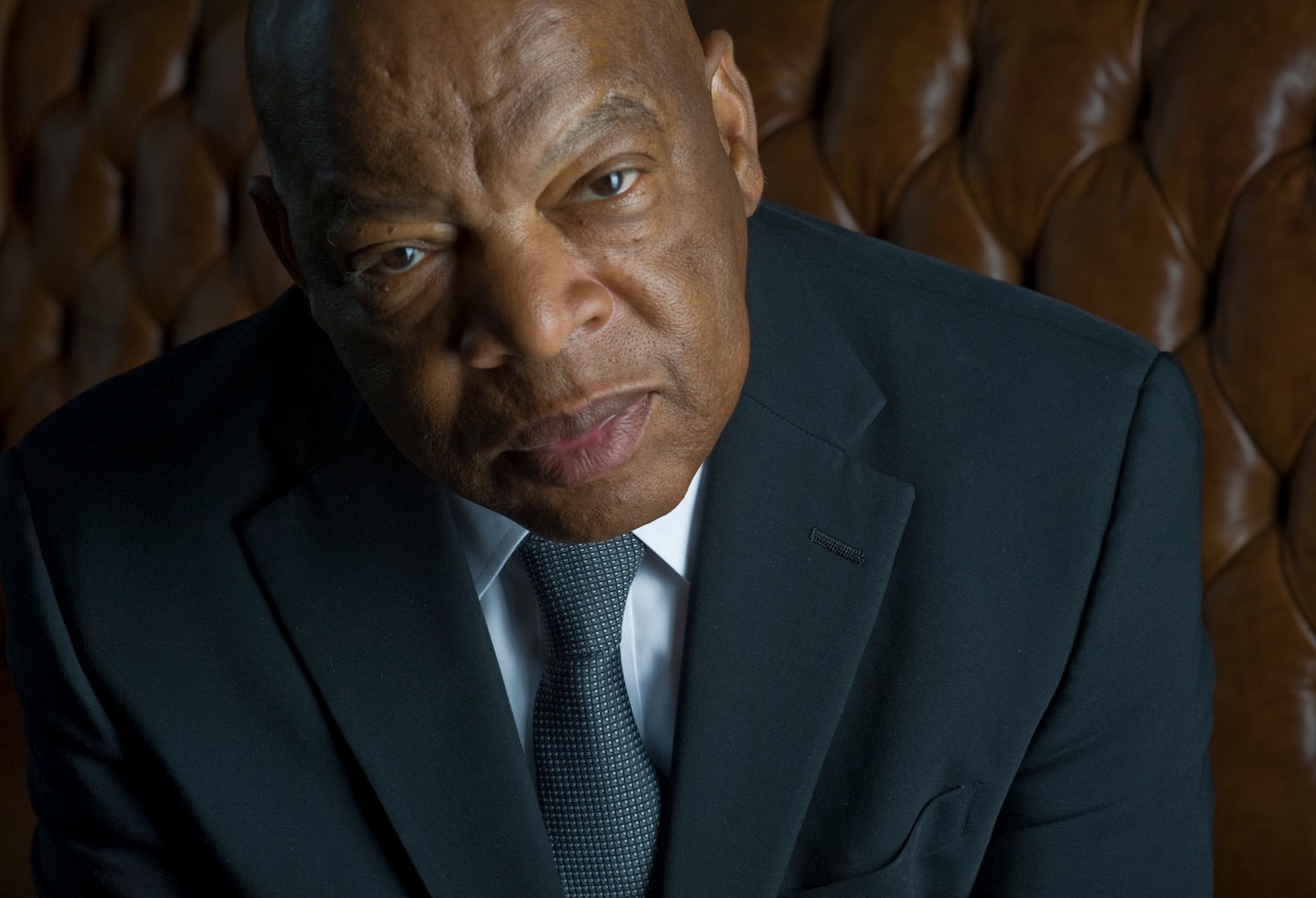How to remember John Lewis

The strident young firebrand who helped lead a revolution became, over the decades, an elder statesman widely acclaimed as an American hero. He never really changed, though. Instead, he and his compatriots in the civil rights crusade changed the world.
We have seen many iconic photographs of Lewis over the years — standing at the microphone in front of the Lincoln Memorial, posing for mug shots after his many arrests, leading an annual procession across the Edmund Pettus Bridge. For me, however, one of the truest images of this diminutive yet towering man was captured just last month. Rail-thin and ailing from pancreatic cancer, Lewis summoned the energy to visit newly christened Black Lives Matter Plaza near the White House and stood proudly on the 50-foot lettering, visible from space, that summed up his life’s work.
That’s who Lewis was: not a conciliator but an instigator. If he were young again, I have no doubt that he’d be on the front lines of the protest movement that arose following the killing of George Floyd. Lewis lived, fought and triumphed by the words of Frederick Douglass: “Power concedes nothing without a demand. It never did and it never will.”
How, then, should we remember this great man? Not with fuzzy, feel-good encomiums but with a clear-eyed look at his monumental accomplishments and the work still left undone.
Lewis’s long career of activism reminds us that fundamental change does not come without conflict — and that “nonviolent” does not mean “nonconfrontational.” When Lewis traveled through South Carolina with an integrated busload of Freedom Riders or organized demonstrations in Alabama to demand voting rights, he was challenging authority and defying police. When a group he was leading was given an official order to halt or disperse, he ignored it and pressed on. He regularly violated Jim Crow laws and was arrested some 40 times. More than once, he was beaten within an inch of his life.
He survived to become a senior member of Congress, to be awarded the Medal of Freedom by the nation’s first African American president and to be considered a national hero. None of it ever seemed to go to his head, though. There was too much work still to do.
When Lewis spoke to groups of young people, he often began by telling of his childhood near Troy, Ala. His parents were former sharecroppers who had scraped together enough money to buy their own little spread, and one of his chores was the care and feeding of the family’s chickens. He would take a Bible out to the yard and preach to the poultry, intent on saving their souls. It was a calling that led him to study at a Baptist seminary in Nashville, where he met leaders of the nascent civil rights movement — and found his higher calling.
Lewis would urge young audiences not to follow the rules but to “get in good trouble” by pushing for fairness and justice. “Get in the way,” he would exhort activists who were pushing, often rudely, for positive change. “Keep getting in the way.”
So please, no crocodile tears or soaring words of praise for Lewis from Republicans whose strategy for winning in November is to keep African Americans from voting. If you are trying to take away the rights this great American suffered a fractured skull to win, you don’t really admire him at all. You spit on his legacy and dishonor yourselves.
Read more:






